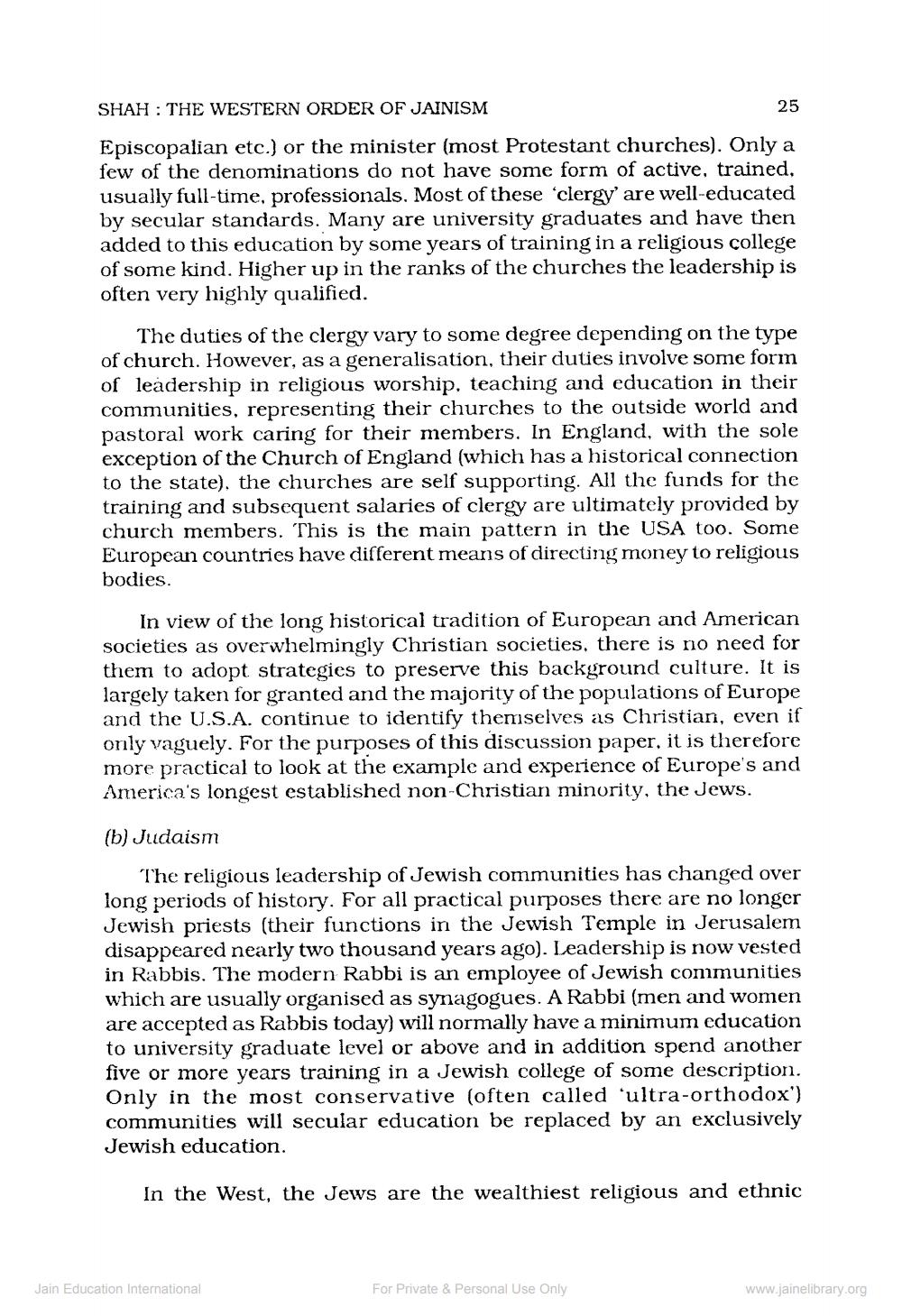________________
SHAH : THE WESTERN ORDER OF JAINISM
25
Episcopalian etc.) or the minister (most Protestant churches). Only a few of the denominations do not have some form of active, trained, usually full-time, professionals. Most of these clergy' are well educated by secular standards. Many are university graduates and have then added to this education by some years of training in a religious college of some kind. Higher up in the ranks of the churches the leadership is often very highly qualified.
The duties of the clergy vary to some degree depending on the type of church. However, as a generalisation, their duties involve some form of leadership in religious worship, teaching and education in their communities, representing their churches to the outside world and pastoral work caring for their members. In England, with the sole exception of the Church of England (which has a historical connection to the state), the churches are self supporting. All the funds for the training and subsequent salaries of clergy are ultimately provided by church members. This is the main pattern in the USA too. Some European countries have different means of directing money to religious bodies.
In view of the long historical tradition of European and American societies as overwhelmingly Christian societies, there is no need for them to adopt strategies to preserve this background culture. It is largely taken for granted and the majority of the populations of Europe and the U.S.A. continue to identify themselves as Christian, even if only vaguely. For the purposes of this discussion paper, it is therefore more practical to look at the example and experience of Europe's and America's longest established non-Christian minority, the Jews.
(b) Judaism
The religious leadership of Jewish communities has changed over long periods of history. For all practical purposes there are no longer Jewish priests (their functions in the Jewish Temple in Jerusalem disappeared nearly two thousand years ago). Leadership is now vested in Rabbis. The modern Rabbi is an employee of Jewish communities which are usually organised as synagogues. A Rabbi (men and women are accepted as Rabbis today) will normally have a minimum education to university graduate level or above and in addition spend another five or more years training in a Jewish college of some description. Only in the most conservative (often called 'ultra-orthodox') communities will secular education be replaced by an exclusively Jewish education.
In the West, the Jews are the wealthiest religious and ethnic
Jain Education International
For Private & Personal Use Only
www.jainelibrary.org




